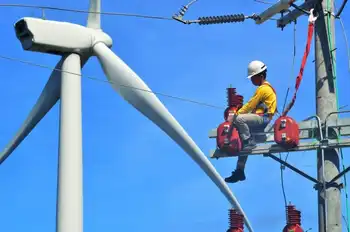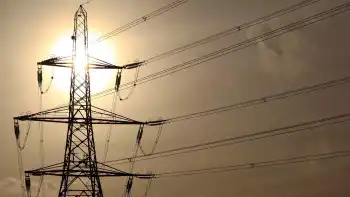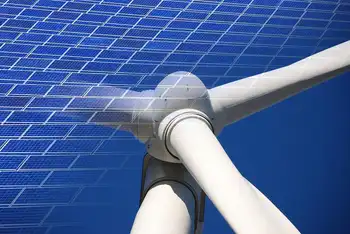Capture cooler air for less
By Salem News
Protective Relay Training - Basic
Our customized live online or in‑person group training can be delivered to your staff at your location.

- Live Online
- 12 hours Instructor-led
- Group Training Available
The power grid depends on several fuels — natural gas, oil, nuclear and coal — and generating electricity has become more expensive as a result of the recent energy crunch and ever-rising prices.
To save money on your electric bill, lower your energy consumption and reduce your home's carbon footprint, there are several steps you can take to cool off your home and reduce energy needed for cooling.
The first thing to do is assess your space and comfort needs as well as your current energy usage.
Energy usage depends on your cooling equipment's efficiency — fans, window and wall air conditioners, central air and alternative systems all have a measurable wattage. Most equipment is measured using the Air Conditioning And Refrigeration Institute's Seasonal Energy Efficiency Ratio numbers. The SEER is the number of British Thermal Units or BTUs (the measure of how much heat a unit can remove in one hour) divided by watts. The higher the SEER number, the more efficient it is at doing its job. When buying equipment, look for a high SEER number as well as the Energy Star label.
To calculate usage, follow this example. A bedroom-sized 6,000 BTU window air conditioner unit that uses 600 watts per hour would have a SEER of 10. If it operates for 720 hours this summer (perhaps 8 hours per day for 90 days), that equals 4,320,000 BTUs (6,000 BTU/h * 720 h). Using my latest NStar bill, energy costs about .10 per kilowatt (kw).
Once you realize how much energy your equipment uses and how much you are really spending to stay cool, then become savvy about its use.
First, when you are not home, turn air conditioners, fans, and everything not needed off. Plug-in timers for window air conditioners are available, and central air conditioner control timers will allow you to program start-up to just before you get home if that is a concern.
Second, maintain your equipment so it runs as efficiently as possible.
Third, take steps to reduce producing excess heat and humidity in your home that makes equipment work harder.
Avoid overuse of lights. Incandescent bulbs cause air conditioners to work harder.
Clean air conditioner filters monthly. Use a garden hose to wash fins and exterior condenser coils. Dirt blocks air flow and makes the air conditioner work harder.
Place window air conditioners and central air units in shady areas.
Be sure equipment is sized properly for your space needs when installing central units. It is actually a complex measure that depends on several variables and requires the use of a technician that follows national standards. Check out the U.S. Department of Energy's Consumer Guide to Energy Efficiency and Renewable Energy online at www.eere.energy.gov/consumer/ for more information.
Consider temperature settings. Many recommend setting air conditioners to no lower than 78 degrees and not turning them on until the temperature outside reaches 95 degrees. This is obviously personal preference, but running air conditioners at lower temperatures is going to use a lot more energy and cost a lot more.
Use or install awnings over large windows such as in bright, south-facing windows, and/or keep blinds and shades partially drawn to avoid heating up interior air with sunlight.
Take advantage of breezes and open windows whenever possible.
Try keeping a thermometer or thermostat outside the house that you can view from inside. When temperatures decrease, such as at night, switch to open windows and fans to cool off.
Install and use ceiling fans. They require a lot less energy — about one-tenth of an air conditioner. Room size fans ranging from 36 to 52 inches use between 50 and 95 watts per hour. They don't actually cool the air — they cool you off by blowing warm air away from your body, so turn them off when not in the room. (The fan setting on your air conditioner simply filters air, though it uses much less energy in this mode.)
For homes with central air, close registers in rooms that are not in use and that will reduce the amount of energy needed for the system to cool the rest of the house.
Keep appliances and lights away from central and other air conditioning units that have external thermostats. They can falsely cause the unit to run longer and harder.
Slow that electric meter down by unplugging small appliances not in use — televisions, coffee pots, toaster ovens, etc. — all can consume electricity even when the power is off. Try a power strip for entertainment units to make using them easier.
Installing dimmers on light switches can reduce electricity consumed when setting lights low. Also, ultra long-lasting compact fluorescent lights will use a lot less energy, but be aware that they contain mercury, which is dangerous to human health, and must be disposed of as hazard waste.
Refrigerators account for about 25 percent of your home's energy. Clean exterior condenser coils (beneath or behind) and door gaskets for improved efficiency. Check temperatures and run on power save or low-humidity mode if available. With manual defrost refrigerators do not allow ice to become more than 1/4-inch thick or the unit has to use more energy to do its job.
Wearing light colors easily reduces the heat your body absorbs, and painting interior walls and home exteriors with light colors reduces the heat your home absorbs.
Lower and reduce excess humidity:
• Keep kitchen, laundry, and bathroom areas closed off so air conditioners don't have to work harder.
• When showering, open bathroom windows to let steam and condensation escape.
• Attic windows should be open. They let the hottest air from the whole house escape. An attic fan will also help to circulate your home's air by pulling hot air up and pushing stagnant air out.
• Schedule moisture-producing chores like washing floors, doing dishes, and laundry and baths and showers for mornings or evenings.
• Use appliances like dishwashers, washers and dryers during cooler parts of the day to avoid the extra heat they give off.
• I personally avoid using my oven in the summer. A small countertop oven uses less energy and causes less heat output. If you need to use your large oven, cook as many dishes as possible at once, adjusting temperatures and cooking length rather than cooking dishes separately and running the oven all day. Don't preheat, and be sure to use your exhaust fan to remove oven and range top heat.
• Cover cooking pots to minimize steam escaping into your kitchen.











